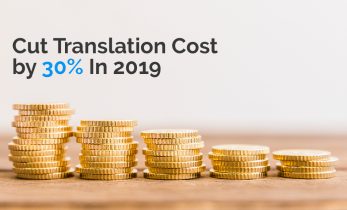Greater than 3 minutes, my friend!
Exploring Transparency in the Translation Industry
If you are a translator, then you have probably come to understand why maintaining transparency with your clients is of significant importance to your career success. However, if you are not a translator, if you are just about to purchase translation and localization services, and if the concept of transparency in the translation industry is still unclear to you, let me help you understand why transparency is so important as for your translator as well as for you.
Why Is Transparency Important for Your Translator?
By being open with you from the outset, translators automatically set the precedent for how they expect to be treated (with the same courtesy, of course). Moreover, taking care of you by acting in a transparent manner will result in you having to ask fewer questions during the translation process. However, you should not doubt about your translator’s skills in case you get asked questions during the translation process simply because translators do that to clarify their own doubts.
Why Is Transparency Important for You as a Client?
When working with translators, you will find that you highly appreciate being kept “in the loop” regarding new developments pertaining to your translation project. Moreover, being presented a sense of openness about your project will indicate to you that your translator is taking every possible action to make your translation the best it can be.
How to Test the Transparency of Your Translator
Now that you are well aware of at least a couple of the benefits of transparency, let’s see how you can test the transparency of your translator:
1. Your Translator Keeps You Updated: Of course, we understand that you don’t really want to be bothered with hourly updates on your translation projects; however, if translators ensure to let you know of all relevant developments regarding your translation project, then that is a sign of transparency.
Tip: One of the most effective ways of being kept updated would be through real-time dashboards.
2. Your Translator Is Honest to You: If translators are trying to be honest with you when difficulties arise, then they are transparent enough to be able to inform you of the problem so that you can work together to find a solution.
Tip: If you ever face such situation, don’t judge your translator, simply because translators understand that burying their heads in the sand has never been the best solution.
3. Your Translator Is Clear to You Upfront: This may sound harsh; however, when translators are making sure to state their intentions and expectations about their business relationship upfront, then they are actually trying to be transparent. Bearing this in mind, don’t get surprized if you get asked to agree to your translator’s terms and conditions.
Tip: Make sure to discuss with your translator your projects’ start and end dates, what your completed translation will include, whether you have to make an upfront payment, and how soon your translator expects to be paid after sending an invoice.
4. Your Translator Asks You for Feedback: Expect translators ask for your feedback on their transparency when your translation projects are complete (well, of course, you should only expect this in case they were actually transparent to you). This is beneficial for them because it shows that they were open to listening to you. Additionally, it will also help them identify potential areas where their transparency can be improved in the future.
Tip: Bearing the fact that your feedback will help your translator improve in the future in mind, always try to provide as honest feedback as possible.
Having read this article, I hope you now know how to test the transparency of your translator; however, instead of a conclusion I would really want to mention one more final crucially important thing, and that is that transparency only works when it flows both ways.
What I mean by this is that it is not fair to ask translators everything but their ID numbers if you are still protecting your translation and localization strategy like a top secret.
Translators need to know how exactly you work and have worked before to be able to produce quality translated and localized content. The best way to codify your customs is by creating style guides and glossaries. And when you do, make sure your translators have access to them. Otherwise, you can expect either a continuous stream of messages asking you to define your preferences regarding the specific terms for your products or service, or facing costly and time-consuming changes that will definitely be required later.




